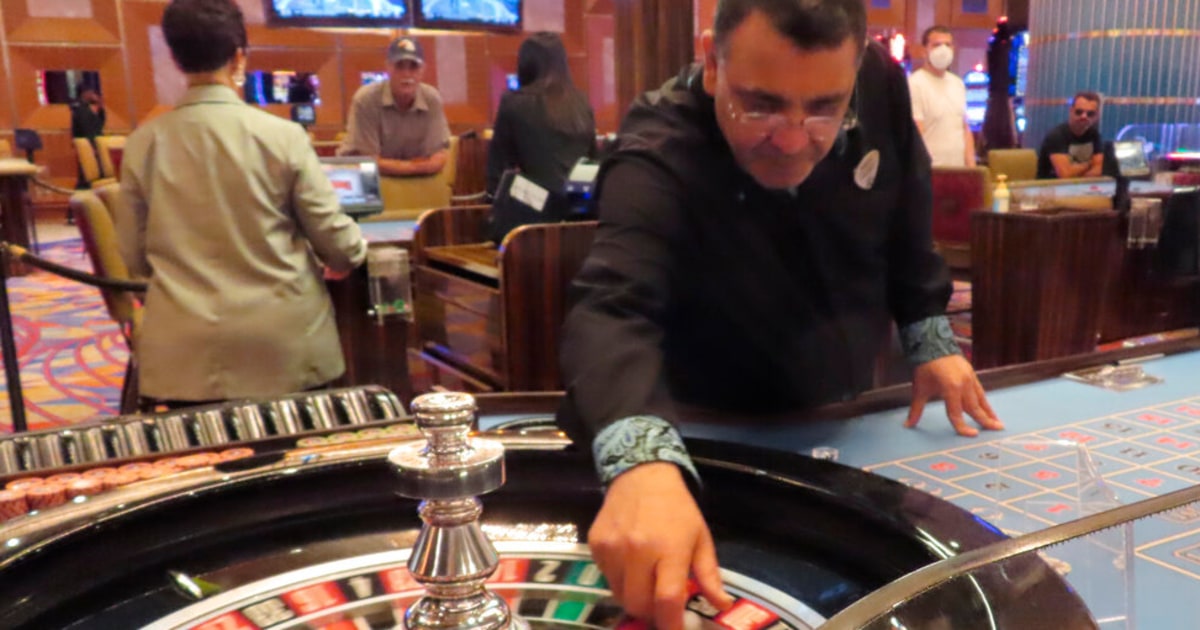Political analysts and polling firms indicate that the GOP has a solid chance of winning control of the House of Representatives, and some advantage in the close race for the Senate.
Would you bet money that it will be so?
Or would you prefer to bet on the
Democratic
horse ?
"When you say to someone, 'Yes, I bet on politics,' their eyes light up. They ask you, 'Can you do that? Is this a joke? Is it legal?'" explains Alex Keeney, host of the Star Spangled podcast. Gamblers, in an interview with The Washington Post.
Political gambling has long been prohibited at the federal level in the United States, and no state has tried to regulate it.
But they are a thriving business in other countries.
A group of political pundits in Washington DC, business titans and top economists are urging regulators in the United States to allow citizens to bet on elections as well.
"Markets are more based on vibrations, they can be moved by principles of conventional wisdom," explains David Weigel, a political analyst interviewed by
The New Yorker
magazine .
With Election Day just days away, and with millions of people already voting early, election betting markets give Republicans about a two-thirds chance of controlling the Senate.
That data is not only used by election campaigns and political analysts, but also by the growing market of gamers who study campaigns and try to profit by picking winners, not unlike the methods used at racetracks or casinos.
TikTok becomes the new electoral battlefield where politicians seek the young vote
Nov. 4, 202200:26
[Young Latinos, crucial to Democrats, are less enthusiastic this year. Will they go out to vote again?]
Some players are casual hobbyists who like to bet a few bucks on their favorite candidates;
others operate like stockbrokers moving large sums of money, looking to invest when a candidate
sells
low and selling when that candidate's value might peak.
"It's fun. It's a very attractive way to reward yourself (or, if you're less lucky, reward others) for accurately forecasting political events. We like to think of it as an antidote to fake news. If you place your bets based on fake news, you're going to lose your money. So it really sharpens your mind and allows you to separate the emotions from the facts a little bit," explains John Phillips, CEO of PredictIt, a website that was one of the leading marketplaces for fake news. of electoral bets and now faces a shutdown order from the federal government.
Biden and Trump encourage their supporters to go out and vote in the midterm elections
Nov. 4, 202200:47
Experienced gamblers put aside their political leanings and obsessively follow news headlines to stay informed.
In these election markets, investors can buy a candidate's stock for dollars or cents and wait for it to appreciate before selling it, or wait for the day after the election and be paid a dollar a share if he wins.
So, for example, if someone buys 100 shares of stock in Herschel Walker, the Republican candidate for the Senate from Georgia, at 60 cents each this week, that $60 investment would be worth $100 if he wins the election.
32 million votes have already been cast and a poll shakes Democrats with an important group
Nov. 3, 202202:14
Trump is the betting favorite
The 2024 presidential elections are already receiving bets in these markets, with former president Donald Trump as one of the favorites despite the fact that he has not even presented his candidacy;
and other unusual candidates like Kanye West and Dwayne Johnson.
The betting markets in the United States have seen a surge in activity and popularity this election cycle.
PredictIt bills itself as an academic research project, owned by a New Zealand university and run by a for-profit company called Aristotle Inc. It had been operating since 2014 under regulation by the Commodity Futures Trading Commission (CFTC). , by its acronym in English).
Before the 2016 elections, it had about 22,000 users;
this year it already exceeded 177,000.
The CFTC nonetheless rescinded its permit in August, saying the university "has not operated in accordance with the terms of the permit," without disclosing how those terms were violated.
In previous rulings, the commission has indicated that commercial political markets "involve games" and "are contrary to the public interest."
[Quinceañeras, cartoons and cumbia: creative initiatives to encourage Latinos to vote in these elections]
Truth or myth: are Latinos key in the elections?
Nov. 1, 202202:57
The CFTC slapped a $1.2 million fine this year on a similar project called Polymarket for offering political options, and last week recommended rejecting a proposal from Kalshi, a New York-based startup that wants to operate a currency exchange. political options.
The PredictIt case is in federal court.
Phillips told The Washington Post that she is hopeful her website will continue to play a role in political discourse ... and make its users money (and money).
"We're going to get out of this no matter what," she said, "this isn't going to go away."
With information from
The New Yorker
,
Politico
and
The Washington Post

